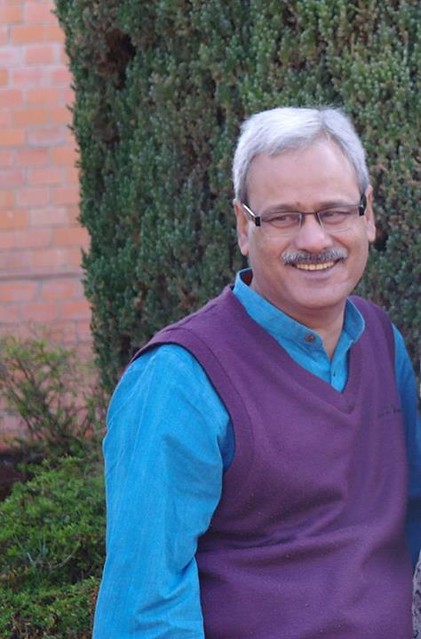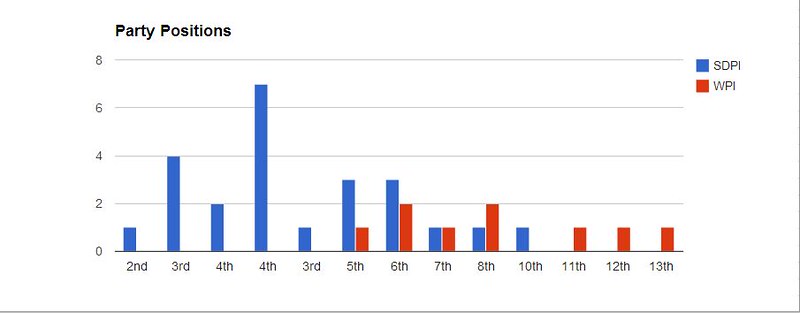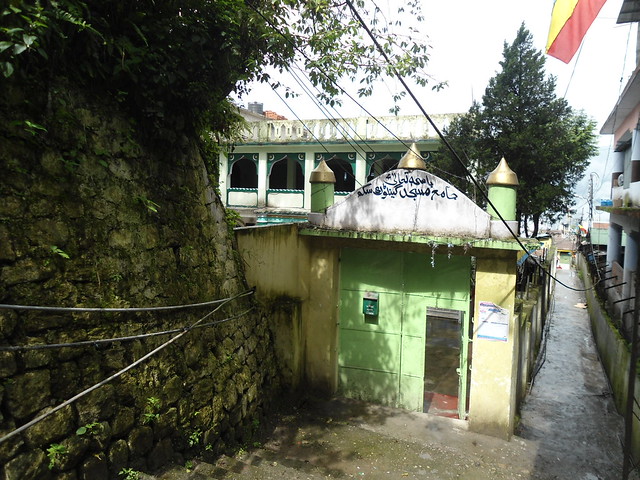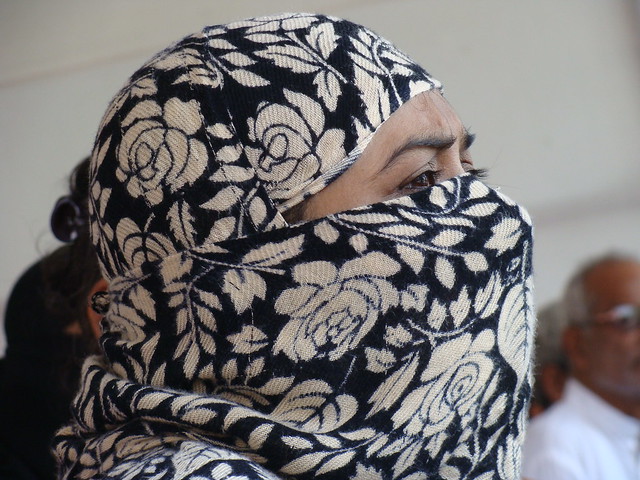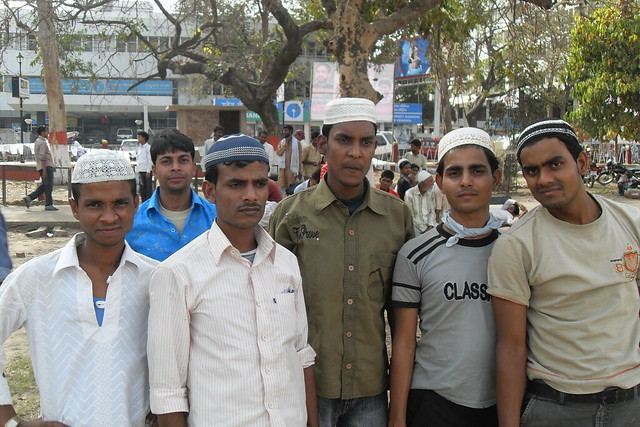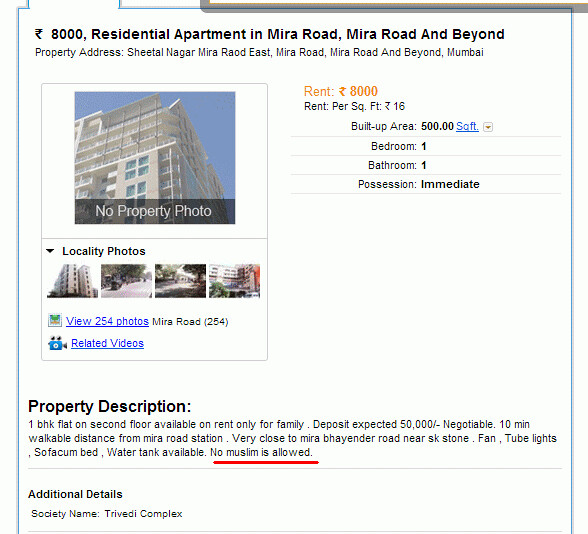By Asma Anjum Khan,
The stage was set, the scene was unique if not rare; one was a Prime Minister and the other an aspirant. They were discussing a man who was the Sardar [grand leader] of his times. The PM aspirant bluffed it as always, and the Sardar PM boxed him into his place. Yes, we are talking about Manmohan Singh and Modi spar about Sardar Patel. After PM aspirant’s desperate attempt to usurp the Sardar legacy, the PM is desperate to show how secular Sardar was.
After Modi and Manmohan’s spar about Sardar Patel, it is the turn of Advani to try to prove that Sardar Patel was secular.
Hello you Guys, your slip is showing!
My quest is not just to know how secular Sardar Patel was, but to try to probe how communal he was, if he was? Sardar Vallabhbhai Patel has left behind a mixed legacy. Discretion is needed while following the lessons taught by the heroes of our history.
![]()
Sardar Vallabhbhai Patel
The Iron Man Sardar Vallabhbhai Patel
Sardar Patel’s ability of taking the right [and tough] decisions at the right time, made him the Iron Man, a virtue lacking in today’s vote-bank bound leaders. Mountbattenwhile disparaging Gandhi’s plan of spending the rest of his life in Pakistan described him as the only man who has his feet firmly on the ground. Formidable Vallabhbhai Patel was a man with a sense of reality; reality whichcould hurt but nevertheless had to be faced. He was said to have complete and firm control over the organization of his party (Congress) and became the first deputy Prime Minister and Home Minister of the newly freed India. J B Kriplanicounts, shrewdness, determination, administrative capacity, and the ability to take definite decisions at all important occasions, as some of his chief characteristics. He also notes that Sardar could not bear opposition and he saw to it that those who opposed him had to pay the price. Later in the day, Mountbatten changed his view and called him as hysterical as the rest of the Congress Leaders. This happened due to a change in Patel’s stance about CHT, where he wrote stating that if it were imposed in East Bengal, the people would be justified in resisting this award by force and the Central government would be bound to support them.
Among the feathers in the Patel cap are counted the merger of more than 500 princely states into the newly formed Union of India. 550 states out of 560 had Hindu kings ruling over Hindu populace, their blending came comparatively easier with a promise that their riches would not get affected. But the real brain behind this is said to be V.P.Menon who was amongst the personal staff of Mountbatten, and often described as closer to Sardar Patel. Formidable Sardar’s approach was often mixed. Even the British officials accepted that they couldn’t have done it without or better than him. When the ruler of Manipur resisted the full integration into the Union, Patel thought out aloud, Isn’t there a brigadier in Shillong? After that it was only a matter of days that this problem was solved. It was for his steely resolve that the Union of India is what we see today. This steely touch and unambiguous stand might be missed in the days of Telangana turmoils.
Operation Polo or, Action’ the annexation of Hyderabad from the State of Nizam and Junagarh, both with Muslim rulers also go to his credit. Patel was the chief architect of both the annexations, especially the latter, in which thousands of Muslims lost their lives. It was Sardar Patel who appointed General Choudhary as army in charge and K.M.Munshi as regent, known for his strong Muslim bias who accomplished the task. Former PM Aspirant Mr. L.K. Advani put a bombshell recently by claiming that Nehru had openly called Patel, a communalist when he heard his plans about Hyderabad.
Sardar Patel and Muslims:
The general impression about Sardar Patel is that of being anti-Muslim. The second last Viceroy of India Lord Wavell [1944-47] dubs him as ‘communal and anti-Muslim’. Wavell thought of Sardar Patel as the only one of the congressmen capable of standing up to Gandhi.
Madhav Godbole former Union Home secretary in his book, The Holocaust of Indian Partition: An Inquest, explains that, Patel’s image as a communalist was, in no small measure , due to his openness and strong condemnation of Muslim communalism. It is obvious that communalism whether Hindu or Muslim needs to be condemned. But our PM aspirants would do better to make a note of how Patel did everything to protect Nizamuddin Dargah in Delhi with special orders to avoid its desecration, during the bloody September of 1947. His unannounced visit to Nizamuddin was a clear indication that he meant business; business of running his country in a saner, safer way. Here I recall complete destruction of the first Urdu poet Wali Gujarati’s mazar in Ahmedabad, all in a night! The mazar[tomb] of the pioneer Gujarati Ghazal writer and poet, Wali Gujarati was located right outside the Police Commissioner’s Office. It was destroyed and then levelled, with concrete poured for vehicles to move over it. This incident occurred in 2002. Modi never said a word in condemnation. This is in contrast with Sardar Patel protecting the tomb of Nizammuddin Aulia.
Sardar Patel was also against division of army on communal lines, where soldiers were asked to choose India or Pakistan, calling it the surest way to ensure a civil war. Also, during the same period he had allowed Sikhs to carry their kirpans; going against Nehru, who wanted a ban. As his feet were firmly planted on the ground, he had the moral courage to take a step backward whenever the situation demanded of him. People suspected Patel of opposing the Nehru-Liaquat pact but H.V.R Iyengar rejects it. To explain this, Iyengar narrates how Patel despite his impregnable way of dealing with issues, used to retract from an earlier stance, if he found he was in the wrong. Patel was disturbed due to the massacres of Hindus in East Pakistan which, led to repercussions in West Bengal where Muslims were killed for revenge. An incident happened where several thousand Muslims hidden in a warehouse of a jute mill, were set alight by Hindus . Thousands succumbed in the fire. Iyengar reports Patel telling him ,
Iyengar, I am afraid we have lost all moral authority to proceed against East Pakistan.
After this, Iyengar professes, Patel fully supported Nehru for maintaining peace accorded in Nehru-Liaquat pact. Will the PM Candidate of BJP ever have the courage to accept the moral responsibility for 2002? Dr Juzar Bandukwala ,the widely respected activist and one of the many people we befriended virtually after Gujarat carnage sums it up quite resolutely, Sardar Patel was a complex man. He was close to Gandhi and in that sense he may be said to be non-communal. But he represented the right wing in the Congress. Relative to Nehru, he was less sympathetic to Muslims. But in the context of the RSS/BJP fanatics like Modi he was certainly a liberal. Dr.Bandukwala adds that, it is significant that Sardar Patel banned RSS, after Gandhiji’s death. He also condemns the RSS/BJP tendency to appropriate our national leaders. As luck would have it Sardar Patel significantly [or say innocently] wanted to win over RSS with love! He is supposed to have said, “They love their country .Only their trend of thought is diverted. They are to be won over by Congressmen by love.” Congress’ politics of last 60 years stands for this, open hatred and hidden love for RSS. But those who know nothing but hatred may not comprehend the language of love. Dr.Bandukwala hits the nail right on its head when he says that, “As far as I understand, the Sardar had no close Muslim friend. The only Muslims he knew well were Jinnah , and the Congress leaders Maulana Azad and Badshah Khan . There is a vacuum in his interaction with common Muslims. This had a negative effect in his interactions with Muslims.“
Patel and Pakistan
But it was also Sardar Patel who moved that resolution in the constituent assembly that implied discarding the proposal of separate electorates for the Muslims, a crucial privilege granted to Dr. Ambedkar. Sardar Patel had disliked the consequences of separate Muslim electorates, before partition. Indian Muslims paid a heavy price as a result. He was blunt enough to tell Muslims ,
“I respectfully appeal to all believers in the two nation theory to go and enjoy the fruits of their freedom and leave us here in peace.”
He had firm belief in a united India, resolving, What nature and God had intended to be one on no account can be split in two for all times. He termed the two-nation theory, the false doctrine of two nations. Patel himself had an awareness of the criticism of his not following Gandhiji, he had said, “While people talk of our failing to follow Gandhiji’s teachings, I wish to give you an example which I remember from his conversation.” He goes on to record how happy and proud he found Gandhiji when the latter heard about the operation in Kashmir by the Indian army. It was this formidable leader who was responsible to airlift troops in Srinagar, Kashmir, under the British commanders. Sardar Patel, also wanted to attack Pakistan, if possible. He had said, “If all the decisions rested on me, I think I would be in favor of extending this little affair in Kashmir to a full scale war with Pakistan. Let us get it over with once and for all and settle down as a united continent.” Was it for this, that Gandhiji preferred the calmer Nehru over him?”
![]()
[Courtesy: indiaopines.com]
Sardar Patel’s Equation with Other Leaders
His relations with other leaders of the time make an interesting reading. It is surprising to know that Moulana Azad is said to have told Humayun Kabir, editor of his biography,India Wins Freedom,that he made the mistake of choosing the wrong candidate for Congress president, had he proposed Patel’s name instead of Nehru’s, then, he would have evolved into a prime minister and would have proved to be a better one than his closest friend Nehru. It has always been a million dollar question as to why Mahatma Gandhi chose Nehru over Patel. Perry Anderson tries to reply, “Gandhi who had always sought to remain on good terms with the British , had picked Nehru as his successor partly on the grounds that he was culturally equipped (to) get on so well with them, as Patel or other candidates were not.”
When someone asked Patel, when he had solved the problems of all states and even performed the most difficult task of the merger of princely states, why he couldn’t do the same with Kashmir? Pat came the reply that as Nehru had taken Kashmir as his own personal and special case, he couldn’t. He had no qualm terming Nehru’s speech full of emotional insanity! Nehru had declared that Congress was free to act as it wished, after agreeing to the federation principle, earlier. Patel often was found complaining of how Nehru’s public salvos put the party into difficulty. The skirmishes between the two stalwarts are in common knowledge, with Patel terming Nehru as the Only Nationalist Muslim, which was also a jibe at Moulana Azad and denominating Rajgopalachari as half a Muslim’. This, certainly generated tense moments. But at other times he has also talked about Nehru’s childlike innocence, while Jinnah had designated him, Peter Pan of Indian Politics!
It is a testimony of the greatness of these two leaders that they worked together for the greater good of the country. On many occasions the two stalwarts Nehru and Patel collaborated, forgetting their personal grudges, a legacy difficult to follow for the aspirants and the occupants, of the Prime Post of our country. To their credit goes the law of Preventive custody; they both were in favor of inducting Dr. Ambedkar of Scheduled Caste Federation Party into Indian cabinet, as they wanted to avoid his formidable alliance with Jinnah’s ML, while it was Jinnah who had got Dr. Ambedkar elected from Bengal to the then Constituent Assembly. Both were equal partners in suppressing the all revealing Sunderlal report about Hyderabad Action/Annexation where thousands are believed to have died. After Patel’s death in 1950 Nehru’s position grew stronger and no one in his party or in the cabinet could dare challenge him. He took care not to appoint any second deputy PM, after all he wanted to remain unchallenged till he passed away in 1964.
The Statue of Unity the tallest in the world, would tower over every other statue in the world. The question arises should the legacy of Sardar Patel too, be allowed, to tower over those of Nehru and Gandhi? Sardar Patel leaves behind a mixed legacy. Political parties are trying to play sport with it, as suited their bigoted purposes. The man with both his feet firmly on the ground Sardar Patel should be watched with heads firmly on our shoulders. Discern, select and follow, should be the mantra in following the heroes of history.
------
Asma Anjum Khan is Assistant Professor of English in Maharashtra. This essay was first published on IndiaOpines.com

.jpg)


